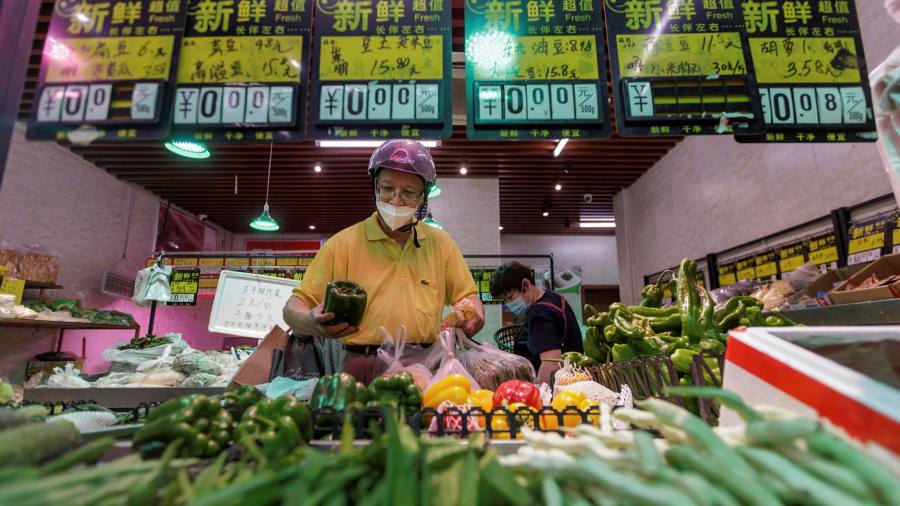Barely a week after the Chinese Communist party declared victory in its struggle to protect Shanghai from coronavirus, half of the financial hub’s districts will be shuttered this weekend to test millions of residents after signs emerged of renewed community transmission of the virus.
China’s most populous city, which was only released from a two-month lockdown last week, detected 11 new infections on Thursday, six outside the city’s mass quarantine centres.
The measures will affect eight of the financial hub’s 16 districts, including Pudong, one of the worst-hit areas at the start of the lockdown.
Three cases were detected in the Red Rose Beauty Parlour in the city centre, prompting health authorities to test more than 90,000 people close to the salon.
Only a few days previously, the Xuhui local party body wrote a celebratory post on the microblogging platform Weibo hailing the salon’s reopening on June 1 for clients who had gone weeks without a professional haircut. It said the state-run salon’s resumption of business reflected how the city’s “pandemic situation improved”. The post has since been taken down.
Wang Hongwei, a local party official in the Xuhui district, said authorities were investigating whether the salon introduced adequate virus prevention measures after one of its employees was found to have not carried out a mandatory PCR test.
The city government’s lockdown directive means residents in the affected areas will not be allowed out of their compounds during the rounds of mass testing.
The reintroduction of restrictions just days after the city’s residents flooded back on to Shanghai’s streets underscored the difficulty of squashing the highly infectious Omicron variant through mass testing and strict lockdowns.
China’s adherence to its contentious zero-Covid policy has hammered the economy, and the latest restrictions will weigh further on consumer expenditure. Chinese producer prices rose at their slowest rate in more than a year in May, as lockdowns knocked demand for important industrial commodities.
Data from the National Bureau of Statistics released on Friday showed that prices rose by just 6.4 per cent compared with the same period a year ago, the slowest rate of factory gate inflation since March 2021.
Any decision to extend the lockdown beyond the weekend will be predicated on how many community cases are uncovered by mass testing.
Covid testing has become a regular part of life in China. Cities have introduced mandates that anyone wishing to enter a public venue has to undergo regular testing.
Shanghai has established about 15,000 testing sites for its 26mn people. Experts said that the huge expenditure on the testing programmes and expansion of existing quarantine facilities was a sign that policymakers planned to stick with the zero-Covid strategy well into 2023, despite its high economic toll.
Following news of the impending lockdown, Shanghaiers rushed to supermarkets to stock up on fresh food in preparation for another extended shutdown.
Beijing is also on high alert after a cluster of cases was detected in Chaoyang on Thursday, linked to entertainment venues in the capital’s largest district.
Additional reporting by Maiqi Ding in Beijing, Wang Xueqiao in Shanghai and William Langley in Hong Kong
Credit: Source link














